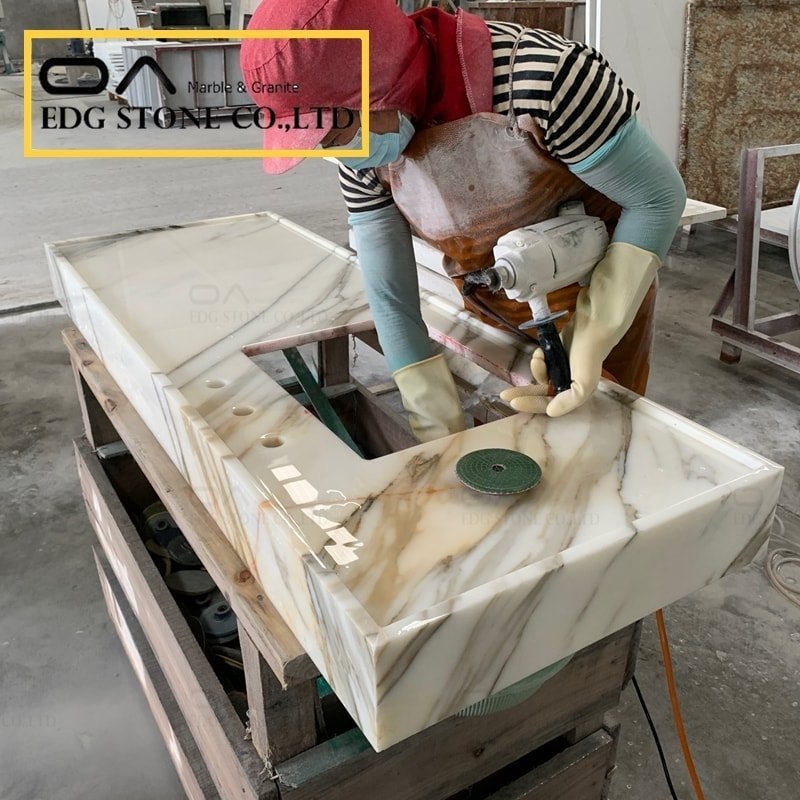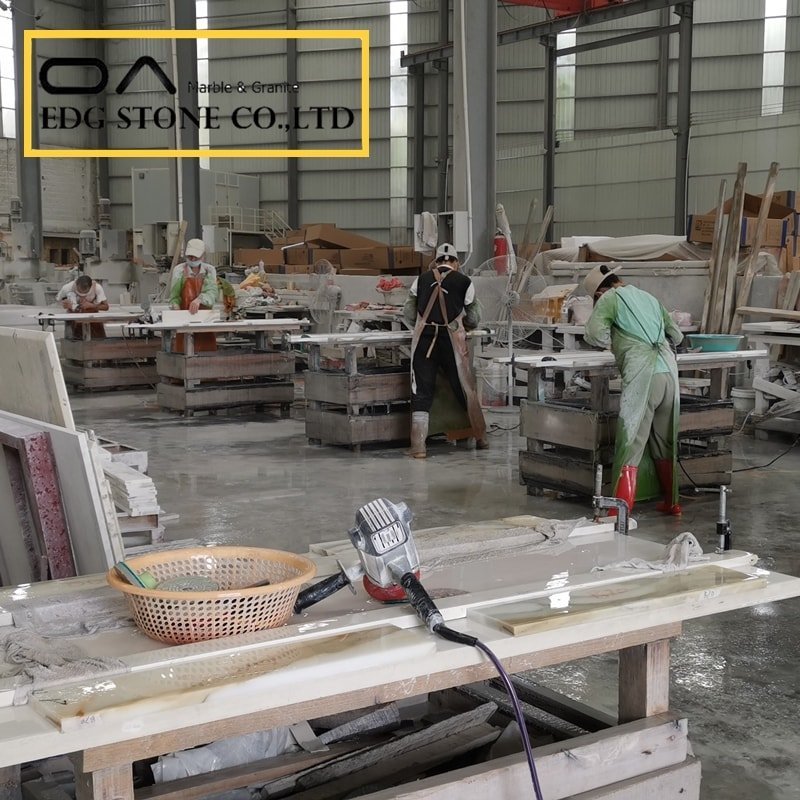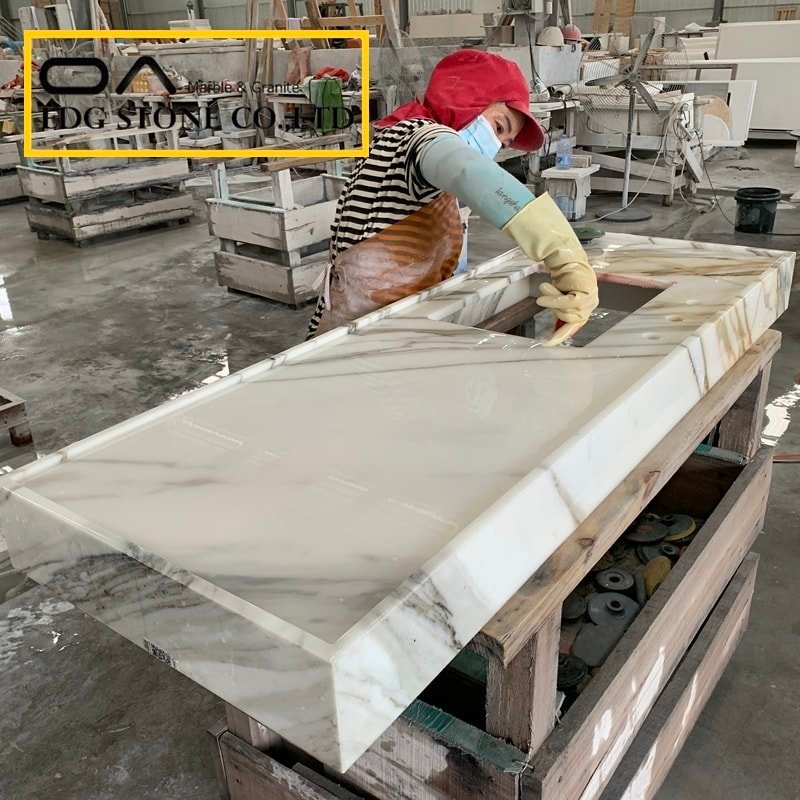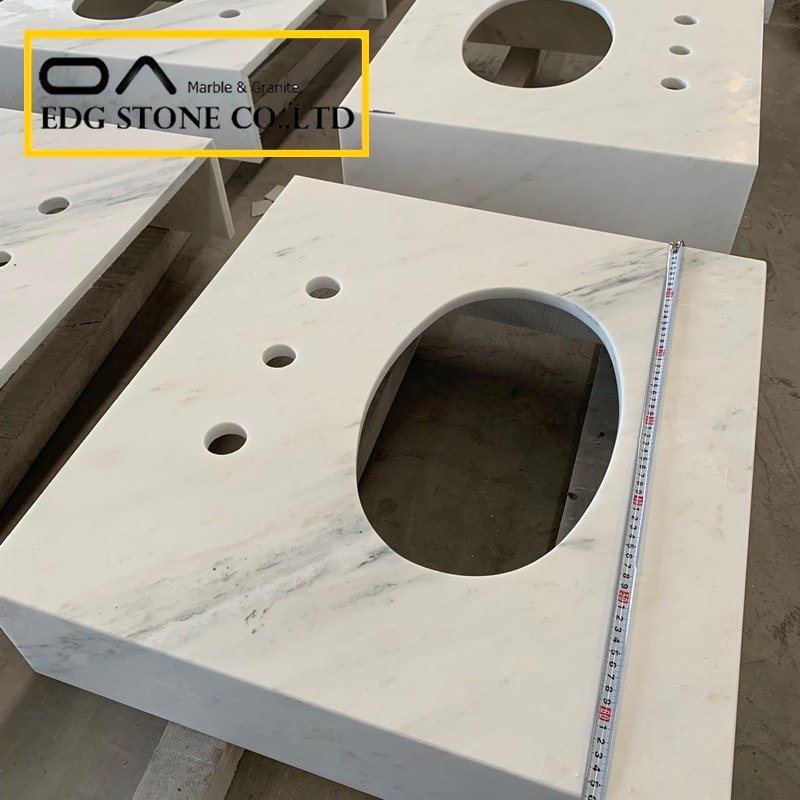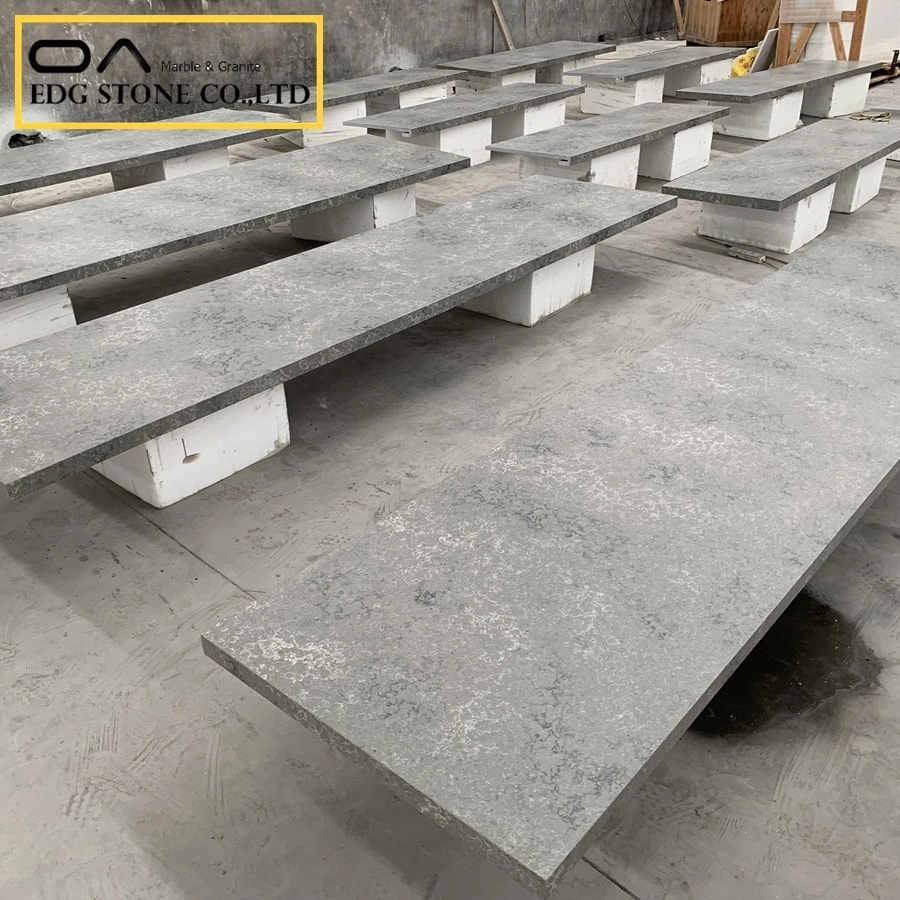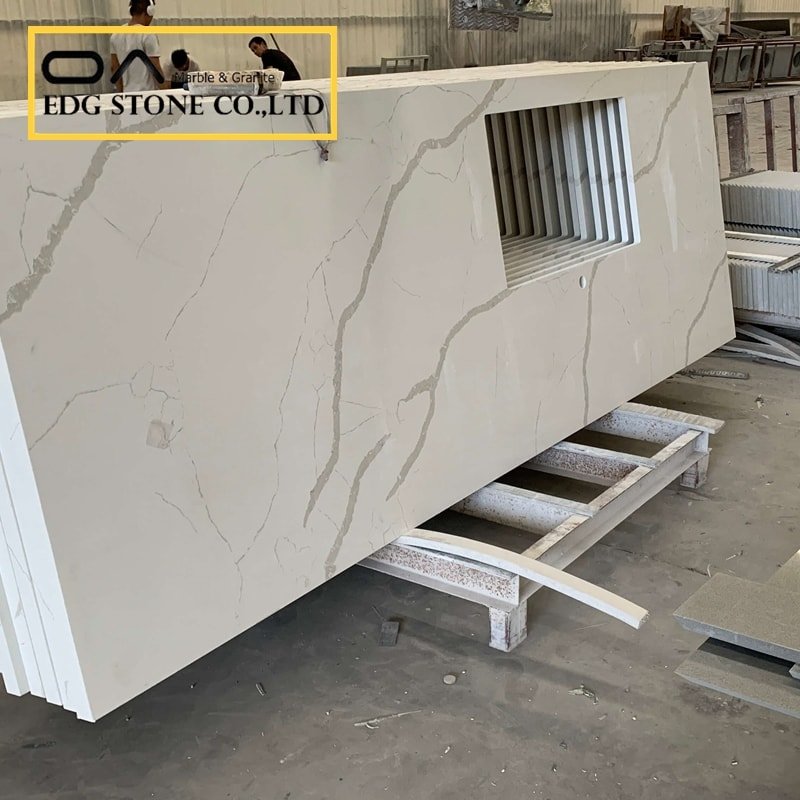The polishing effect of stone is affected by two aspects: one is the polishing technology used, that is, the “acquired” artificial external factors; The second is the “innate” internal factors inherent in the stone itself.
If only the polishing process itself is considered, the main factors affecting the polishing effect of the stone include the type of polishing agent, polishing liquid (paste), polishing tools, and polishing process parameters.
Types of polishes:
Although the polishing agent is a special polishing material, the difference between it and the grinding material is mainly reflected in the processing mechanism. In principle, some low-hardness micronized materials can also be used as polishes. However, it is usually better to choose a polish with high hardness, and the scope of application is wider. For example, diamond polishing powder can obtain more satisfactory results for the polishing of most stones.
Polishing liquid (paste):
Water is a commonly used polishing fluid, which can not only play the role of grinding cooling but also can be used as a medium for physical and chemical effects.
If the polishing of stone is mainly achieved by mechanical grinding, such as the use of diamond powder, oil organic liquid is generally selected as the polishing liquid, such as sewing machine oil. It has excellent cooling, lubrication, and dispersion.
Polishing tools (plates, tools, grinding blocks):
Flat stone light panels are a way to express flat grinding, usually using hard disks made of metal materials as polishing tools. Floppy disk polishing can automatically bend into a concave surface when the stone is pressed, which is suitable for arc polishing. The medium hard disk has good wear resistance and adsorption and has a certain elasticity, suitable for plane polishing, and the effect is better.
Polishing process parameters:
Polishing process parameters include the concentration and supply of polishing agent, pressure, and linear velocity during polishing. Before a certain concentration value, the polishing speed increases with the increase of polishing agent concentration, but after reaching the maximum, further increases in concentration will cause the polishing speed to decrease. Similarly, the supply of polishing agents is within a certain value range, and the polishing speed is the largest, but after a certain value, the polishing speed is reduced.
Appropriately increasing the pressure during polishing can increase the polishing speed, but excessive pressure will enhance the grinding effect, which is not conducive to the formation of glossy surfaces. The polishing speed depends on the speed of the polishing tool, but too fast a linear speed will cause the polishing agent to splash and cause waste.
